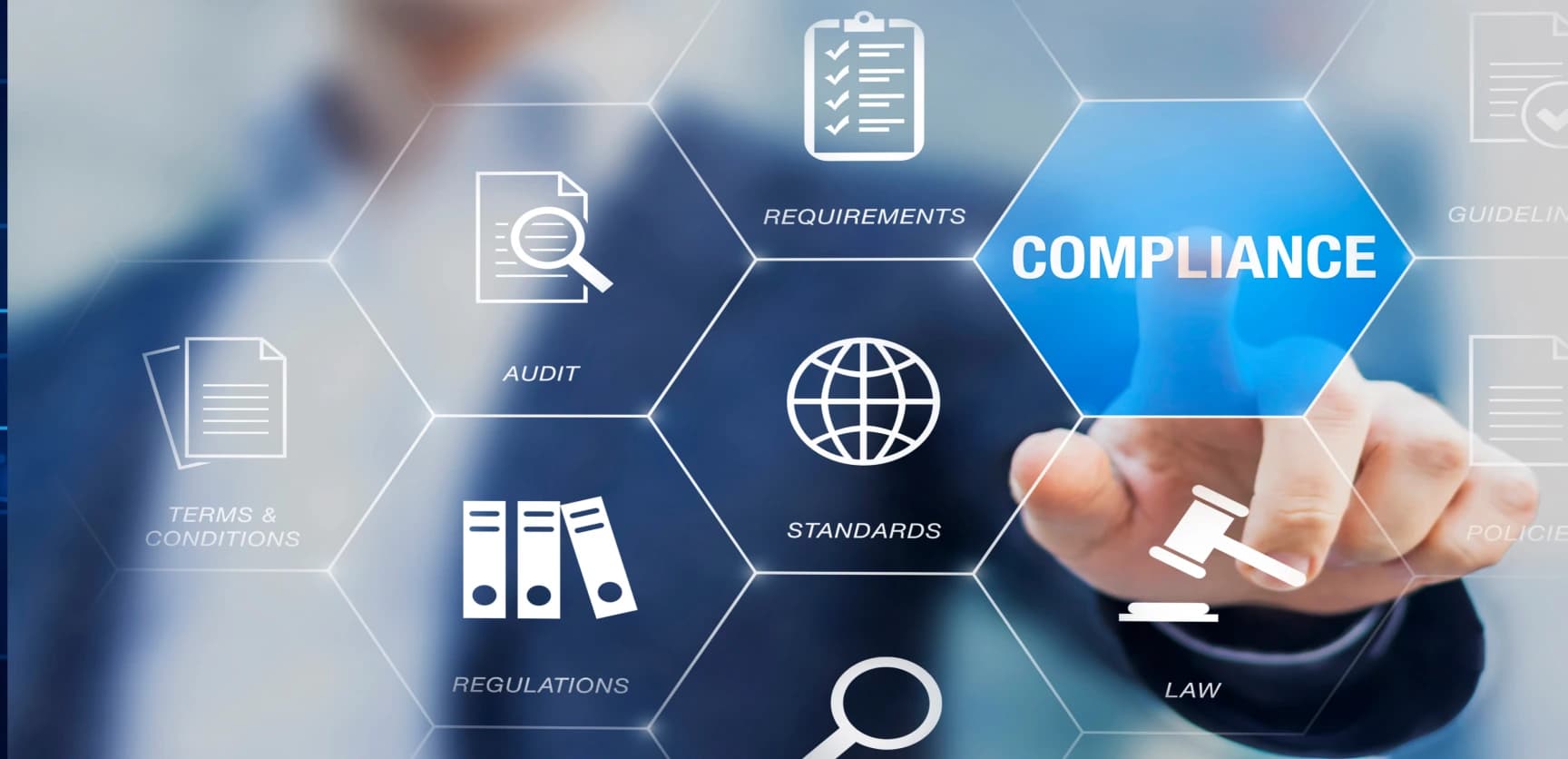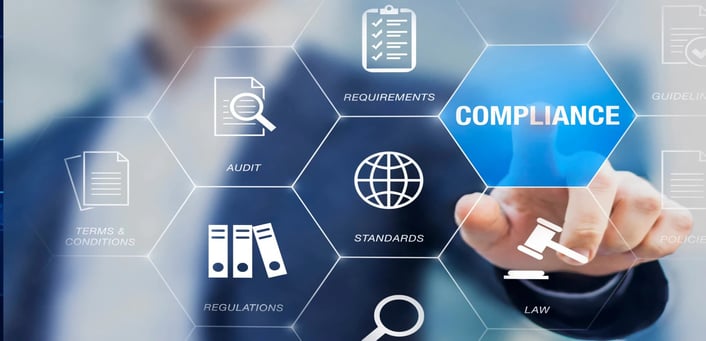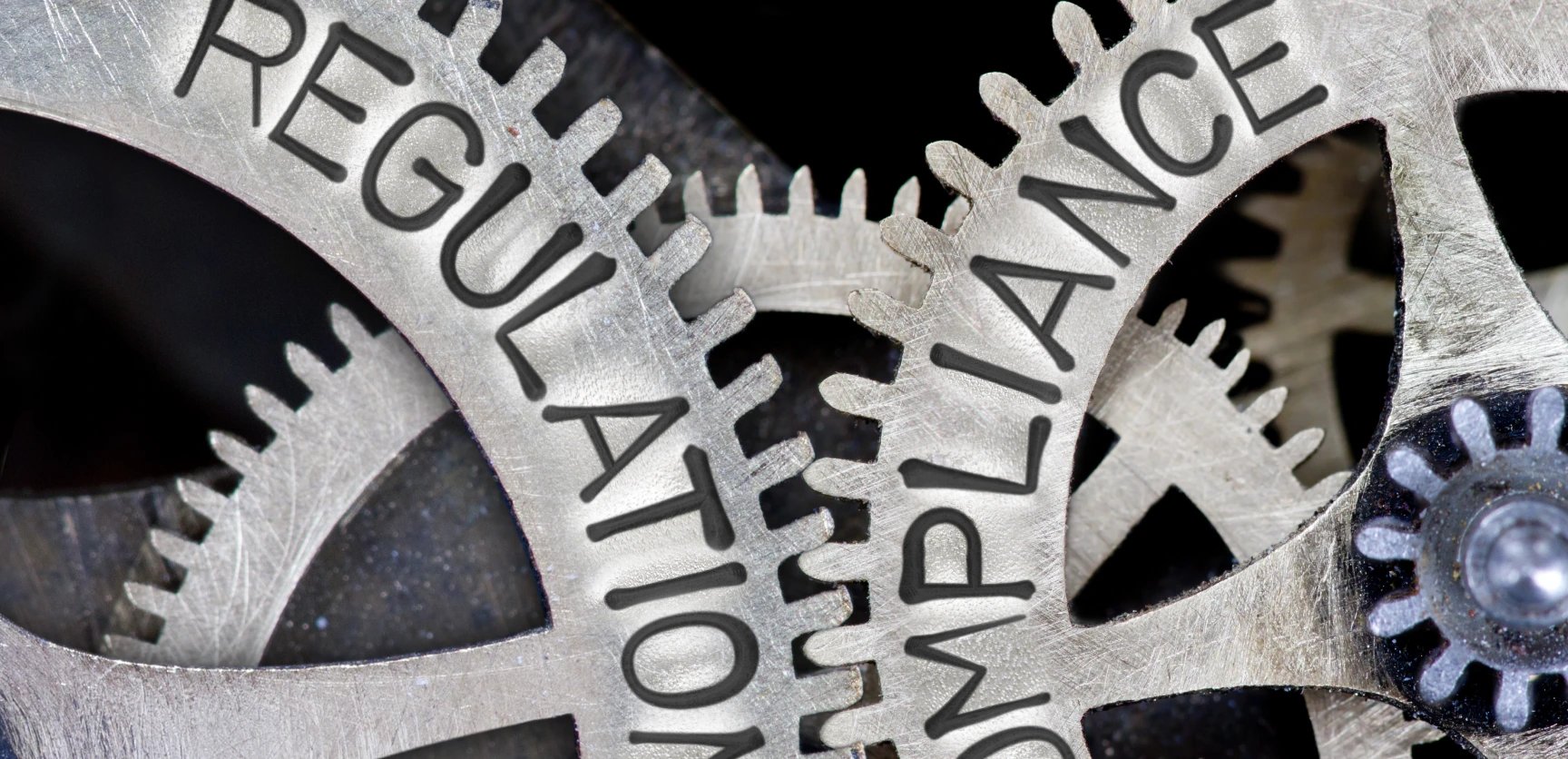- Product
-
Solution
-
By Industry
Cybersecurity solutions tailored to your industry’s needs.
-
- Resources
-
Books
Our ultimate guides and playbooks
Solution Briefs
Overview of PureDome’s functionality
-
Quizzes
Assess your cybersecurity readiness
Case Studies
PureDome customer success stories
Newsletter
Subscribe to the PureDome newsletter
-
- About Us
- Partner
- Pricing
- Download
Key Cybersecurity Compliance Standards: HIPAA, GDPR, PCI DSS
-
Aiman Ikram
-
30 Jan 2024
- 3 min read


In today's digital age, data has become one of the most valuable assets for organizations worldwide. Protecting this data from breaches and ensuring its confidentiality, integrity, and availability is paramount. To address these concerns, various cybersecurity compliance standards and regulations have been established. In this comprehensive guide, we will delve into five of the most prominent ones: HIPAA, GDPR, PCI DSS, ISO 27001, and SOC 2. We will explore the key aspects, requirements, and significance of each standard in the realm of data security.
HIPAA: Safeguarding Health Data
Region: United States
The Health Insurance Portability and Accountability Act (HIPAA) is a U.S. federal law that focuses on protecting the privacy and security of patients' health information. HIPAA compliance is mandatory for healthcare organizations and entities that handle sensitive health data.
Importance: Ensuring the confidentiality and integrity of patient health information is vital for maintaining trust and patient care. HIPAA compliance helps healthcare organizations avoid legal penalties and reputational damage due to data breaches.
Relevant Industries:
- Healthcare Providers
- Healthcare Virtual Assistants
Meeting Compliance Requirements:
To achieve HIPAA compliance, organizations should consider implementing cybersecurity solutions such as:
-
Access Control Systems:
Utilize advanced access control solutions to ensure that only authorized personnel can access electronic health records (EHRs).
-
Encryption Technologies:
Employ encryption for data both at rest and in transit to prevent unauthorized access or disclosure of sensitive health information.
-
Comprehensive Audit Trails:
Implement auditing and monitoring systems that maintain detailed audit trails, allowing for the tracking of all user activities related to patient data.
GDPR: Protecting Personal Data
Region: European Union (EU) and applies globally for organizations handling EU residents' data.
The General Data Protection Regulation (GDPR) is a European Union regulation designed to safeguard the personal data of EU residents. It applies not only to EU-based organizations but also to any entity worldwide that processes EU residents' data.
Importance: GDPR prioritizes individual privacy rights and data protection. Compliance helps organizations avoid severe fines, build trust, and enhance their global reputation.
- Any Organization Handling EU Residents' Data
Meeting Compliance Requirements:
To achieve GDPR compliance, organizations should consider implementing cybersecurity solutions such as:
-
Data Encryption Technologies:
Employ robust encryption methods to protect personal data during transmission and storage, ensuring compliance with GDPR's data protection requirements.
-
Data Minimization Practices:
Adopt data minimization strategies to collect and process only the data necessary for the specified purpose, reducing the risk of data exposure.
-
Consent Mechanisms:
Implement clear and informed consent mechanisms for data collection, ensuring individuals have control over their data and meeting GDPR's consent requirements.

PCI DSS: Securing Payment Card Data
Region: Worldwide.
The Payment Card Industry Data Security Standard (PCI DSS) is a set of requirements for organizations that handle credit card transactions. Compliance ensures the secure handling of cardholder data.
Importance: PCI DSS compliance is essential to protect customers' financial data and maintain trust. Non-compliance can result in data breaches, financial losses, and damage to a company's reputation.
Relevant Industries:
- Retailers
- E-commerce Businesses
Meeting Compliance Requirements:
To achieve PCI DSS compliance, organizations should consider implementing cybersecurity solutions such as:
-
Firewalls and Intrusion Detection Systems (IDS):
Utilize firewalls and IDS to protect cardholder data and network infrastructure from unauthorized access.
-
Data Encryption Technologies:
Encrypt sensitive payment card data during transmission and storage using strong encryption algorithms.
-
Regular Security Testing:
Conduct regular vulnerability assessments and penetration testing to identify and remediate security weaknesses that may put cardholder data at risk.
ISO 27001: A Holistic Approach
Region: Worldwide.
ISO 27001 is an international standard for Information Security Management Systems (ISMS). It offers a comprehensive framework for managing and improving an organization's information security.
Importance: ISO 27001 helps organizations systematically manage and protect their information assets. Compliance enhances data security, minimizes risks, and demonstrates a commitment to best practices.
Relevant Industries:
- Virtually All Industries
Meeting Compliance Requirements:
To achieve ISO 27001 compliance, organizations should consider implementing cybersecurity solutions such as:
-
Risk Assessment Tools:
Use risk assessment software to perform regular risk assessments, identify vulnerabilities and threats, and facilitate the implementation of appropriate security controls.
-
Security Policy Management Software:
Employ software solutions to develop, enforce, and manage security policies, procedures, and guidelines across the organization.
-
Security Information and Event Management (SIEM) Systems:
Implement SIEM systems for real-time monitoring, threat detection, and incident response, enhancing overall information security management.
SOC 2: Trust Services Criteria
Region: United States
SOC 2, developed by the American Institute of CPAs (AICPA), focuses on security, availability, processing integrity, confidentiality, and privacy of customer data. It is relevant to technology and cloud computing companies.
Importance: SOC 2 compliance assures customers of the security and reliability of services. Meeting these criteria is crucial for organizations providing cloud-based services, enhancing trust and competitiveness.
Relevant Industries:
- Technology Firms
- Cloud Service Providers
Meeting Compliance Requirements:
To achieve SOC 2 compliance, organizations should consider implementing cybersecurity solutions such as:
-
Data Security Protocols:
Develop and implement robust data security protocols, including access controls and encryption, to protect customer data from unauthorized access.
-
Availability Monitoring Systems:
Employ monitoring and availability solutions to ensure systems and services are available and reliable, minimizing downtime and meeting SOC 2's availability criteria.
-
Confidentiality Safeguards:
Implement confidentiality safeguards through security measures like encryption, access controls, and employee training to prevent data disclosure and meet SOC 2's confidentiality requirements.
Conclusion: Prioritizing Cybersecurity Compliance
In today's interconnected world, cybersecurity compliance is not optional; it's a necessity. HIPAA, GDPR, PCI DSS, ISO 27001, and SOC 2 represent just a few of the many standards and regulations in place to protect data and ensure its secure handling. Adhering to these standards not only helps organizations avoid costly breaches but also builds trust with customers and partners.
To navigate the complex landscape of cybersecurity compliance, consider employing advanced security solutions like PureDome Business VPN. These tools play a pivotal role in ensuring data security and regulatory compliance, allowing organizations to safeguard their most valuable asset: data.
Frequently Asked Questions
What are the consequences of non-compliance with cybersecurity regulations?
Non-compliance can result in severe consequences, including hefty fines, legal action, reputational damage, and loss of customer trust. It may also lead to data breaches and security incidents.
How can organizations ensure continuous compliance with cybersecurity standards?
Continuous compliance requires a proactive approach, including regular security assessments, audits, staff training, and staying updated with evolving regulations. Utilizing cybersecurity solutions and services can also aid in maintaining compliance.
Are there cybersecurity solutions that can simplify compliance processes?
Yes, there are cybersecurity solutions, such as compliance management software and security tools, designed to streamline compliance efforts. These solutions help automate risk assessments, reporting, and auditing tasks.
What are the key differences between HIPAA, GDPR, PCI DSS, ISO 27001, and SOC 2 compliance standards?
Each compliance standard has its focus and requirements. HIPAA deals with healthcare data, GDPR with personal data privacy, PCI DSS with payment card security, ISO 27001 with information security management, and SOC 2 with service organization controls. Detailed differences can be found in the main blog post.
Is compliance a one-time effort, or an ongoing commitment?
Compliance is an ongoing commitment. Cybersecurity threats evolve, and regulations may change. Organizations must continuously assess, update, and enhance their security measures to remain compliant and protect against emerging threats.
Stay up to date with the latest cybersecurity insights and best practices
Get the latest information, stories, and resources in your inbox. Subscribe for monthly updates.
Securing 1000+ Businesses Across The World